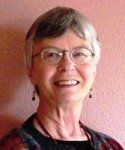Glad to hear you were able to reach Dr. Lamm. Thanks to this forum and your postings and other people' postings it seems we were able to connect dots regarding Thermo-chemotherapy and gemcitabine & docetaxel. Refer to regarding non thermal gemcitabine & docetaxel in this forum.
bladdercancersupport.org/forum/8-non-invasive-superficial-bladder-cancer-questions-and-comments/47198-switch-from-bcg-to-gemcitabine-and-docetaxel.html
Just to put in perspective, BCG therapy for bladder cancer was used in 1975 by Dr. Alvaro Morales of Queen's University in Canada. Dr. Michael O'Donnell of University of Iowa, who co-authored the study of gemcitabine & docetaxel sequential (non heated) treatment for BCG unresponsive is early pioneer for the treatment for non-muscle invasive bladder cancer. Dr. Donald Lamm, who co-authored the study by University of Arizon on gemcitabine & docetaxel sequential (heated) treatment for BCG unresponsive is also early pioneer for the treatment for non-muscle invasive bladder cancer- especially focused on BCG treatment. Below are some of newer generation of urologists who appear often in media on non-muscle-invasive bladder cancer treatment, i.e. Dr. Ashish Kamat of MD Anderson, Texas, Dr. Peter Black of University of British Columbia, Canada, Dr. Arjun Balar od NYU, Dr. Joshua Meeks of Northwestern University in Chicago, IL, etc.
The reason why I mentioned those names that in 2019, Dr. Balar and Dr. Black debated which recently approved treatment for BCG unresponsive is what they would recommend. One is Keytruda which is administered intravenously and Nanofaragene which is administered by catheter into bladder like BCG. We know how Keytruda how it works. Nanofaragra uses adenovirus as a vehicle to deliver the gene intereron alfa-2b into cells. Interferon alfa-2b has been used combined with BCG for those NMBIC patients whom BCG alone did not work.
Adenovirus is common cold virus. Adenovirus cotaining interferon alfa-2b gene penetrates into a cell. The cell will produce a protein interferon alfa-2b translating alfa-2b gene. Then interferon alpha-2b protein kill cancer cells.
Anyway, Keytruda and Nanofaragra showed similar efficacy, though more side effects on Keytruda. But the efficacy was not as good as they had hoped for. The complete response was 53% at 3 month, 24% at 12 month for Nanofaragra and it was 41% at 3 month 19% at 15 month for Keytruda. Anyway, they were aware of the study which reported a good result of gemcitabine and docetaxel. Dr. Black says "the numbers would suggest that it's better than either of these two drugs and it's inexpensive, easy to give, well-tolerated. I think we need to be very, very careful with that data and really need to go with trial data" The link below gives us an access to the video of the debate and trascript.
www.urotoday.com/video-lectures/bladder-cancer-expert-debates/video/mediaitem/1733-a-debate-on-the-management-of-bcg-unresponsive-cystectomy-ineligible-bladder-cancer-patient-pembrolizumab-vs-nadofaragene-firadenovec-arjun-balar-peter-black.html?pk_campaign=BalarBlack_SocialVideo_1733 
